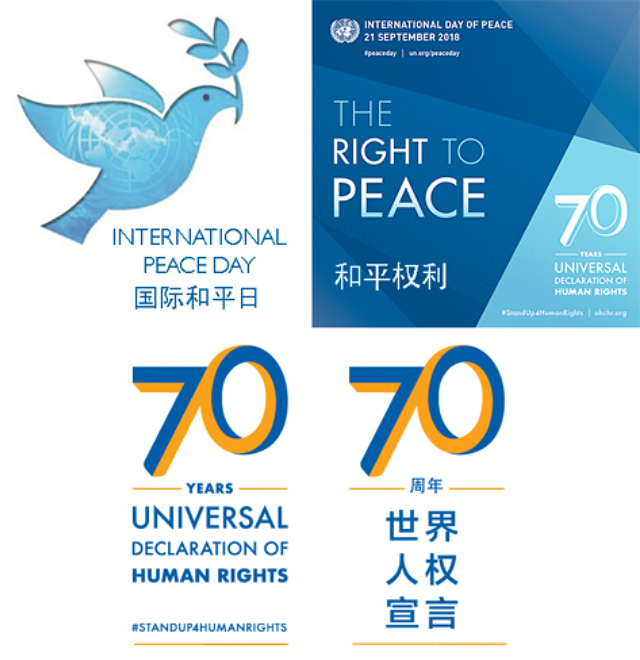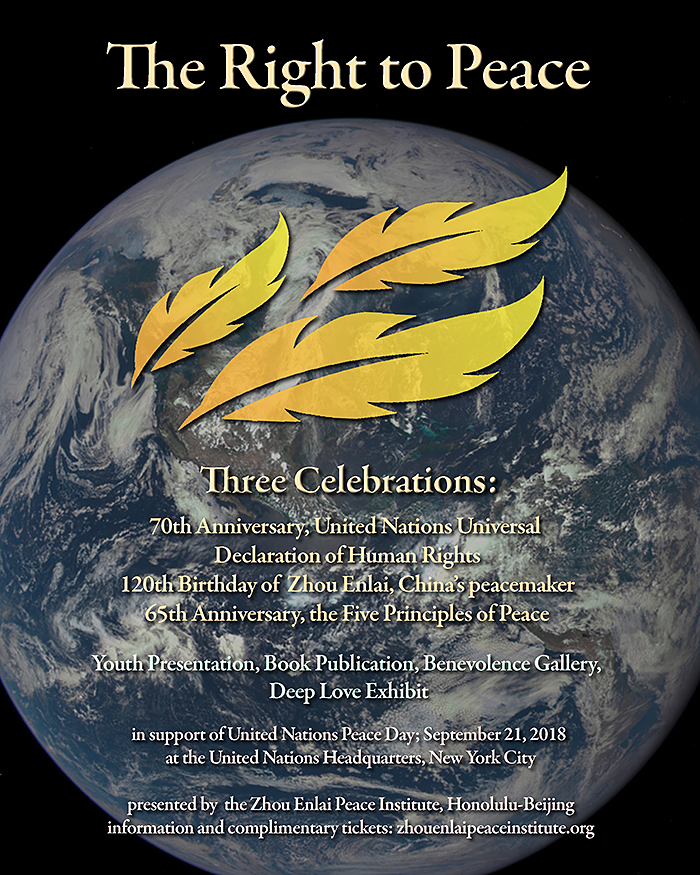United Nations International Peace Day
The Right to Peace

The United Nations Universal Declaration of Human Rights
70th Anniversary
Zhou Enlai, China’s Peacemaker
120th Birthday Celebration
The Five Principles of Peace
65th Anniversary
In Support of
United Nations International Peace Day
at the United Nations, September 2018
Details:
Program and Catalog
(PDF download)
Book Publication, Schedule, Delegations,
Benevolence Art Gallery, Student Delegation
In September 2018, three important celebrations were held, all converging at the same time and place. They are interrelated in significant and fascinating ways.
Hundreds of people from many nations participated in the international celebration, dedicated to peace in our world. The time: beginning at 9:00 am. on September 21, 2018. The place: United Nations headquarters, New York City.
The occasion: United Nations International Peace Day.
Three Celebrations:
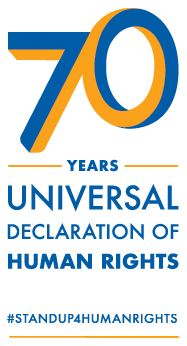 The 70th Anniversary of the United Nations Universal Declaration of Human Rights. In 1948, the shockwaves of World War II still reverberated around the world. People of conscience around the world sought common standards of human rights upon which everyone could agree, to prevent war and sustain peace. They wrote, and the young United Nations ratified, a simple declaration, with 30 parts that fit on two pages, in plain language. It is the most-translated document in human history, with 508 translations and counting. 70 years later, the Declaration is still fresh and vital, and is still unfulfilled, though much progress has been made.
The 70th Anniversary of the United Nations Universal Declaration of Human Rights. In 1948, the shockwaves of World War II still reverberated around the world. People of conscience around the world sought common standards of human rights upon which everyone could agree, to prevent war and sustain peace. They wrote, and the young United Nations ratified, a simple declaration, with 30 parts that fit on two pages, in plain language. It is the most-translated document in human history, with 508 translations and counting. 70 years later, the Declaration is still fresh and vital, and is still unfulfilled, though much progress has been made.
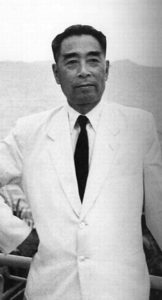 • The 120th birthday of Premier Zhou Enlai is being celebrated throughout China in 2018. Zhou Enlai is respected in his homeland because he stood for integrity, compassion, and dialogue. His common touch helped create a new nation and send her along the path to today’s great accomplishments. His creative vision opened China up to the world, and led to recognition by the global community. But most people outside China know little about this profound peacemaker, and this celebration helps to close that gap, so people can better understand China’s inner purpose. China seeks to live up to the challenge posed by Zhou Enlai: to serve as a leader for peace in the world, alongside other great nations.
• The 120th birthday of Premier Zhou Enlai is being celebrated throughout China in 2018. Zhou Enlai is respected in his homeland because he stood for integrity, compassion, and dialogue. His common touch helped create a new nation and send her along the path to today’s great accomplishments. His creative vision opened China up to the world, and led to recognition by the global community. But most people outside China know little about this profound peacemaker, and this celebration helps to close that gap, so people can better understand China’s inner purpose. China seeks to live up to the challenge posed by Zhou Enlai: to serve as a leader for peace in the world, alongside other great nations.
• The 65th Anniversary of the Five Principles of Peace: recognizing the core work of Zhou Enlai, who was inspired by the United Nations to design a five-part formula to sound relationships among people, and to diplomacy. It is used to this day as the central idea of diplomacy in China; its significance was later recognized by the UN, and it resounds through many modern international institutions. Sovereignty, non-aggression, non-interference, equality, peaceful co-existence: the Five Principles are a simple guide to peace.
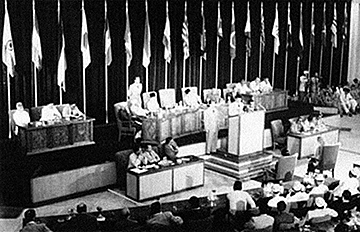
The Bandung Conference, 1954, where the Five Principles were introduced.
“The Right to Peace” is the official 2018 theme of United Nations International Peace Day, enacted by the General Assembly in 1991. These three linked celebrations included an exhibition and art gallery, a book announcement and signing, and a youth performance. All sessions were open to the public.
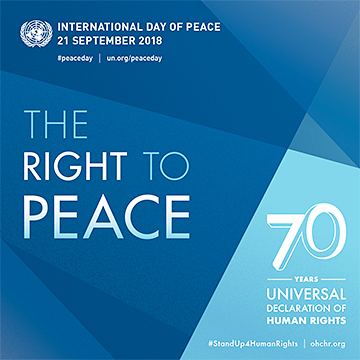
- Book Publication: The book announced at this event was the first ever English translation of “My Uncle Zhou Enlai,” the beloved popular book in China written by Zhou Bingde. The author, who traveled to New York for the occasion, is the niece of Zhou Enlai, who grew up with the Premier in West Flower Hall, the equivalent of the White House in China. We were honored to welcome the author, who spoke and signed copies of the new book personally. She was presented by New Star Press, part of China International Publishing Group, one of the largest publishers in China.
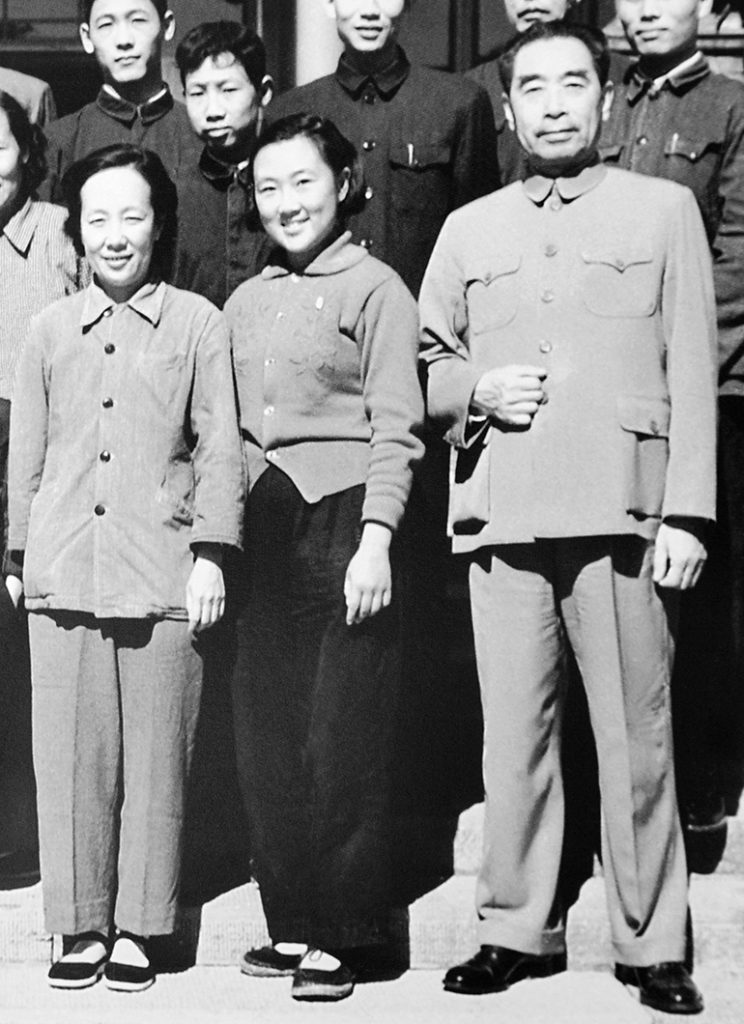
Author Zhou Bingde (center), as a teenager, 1955; with her uncle, Zhou Enlai (right)
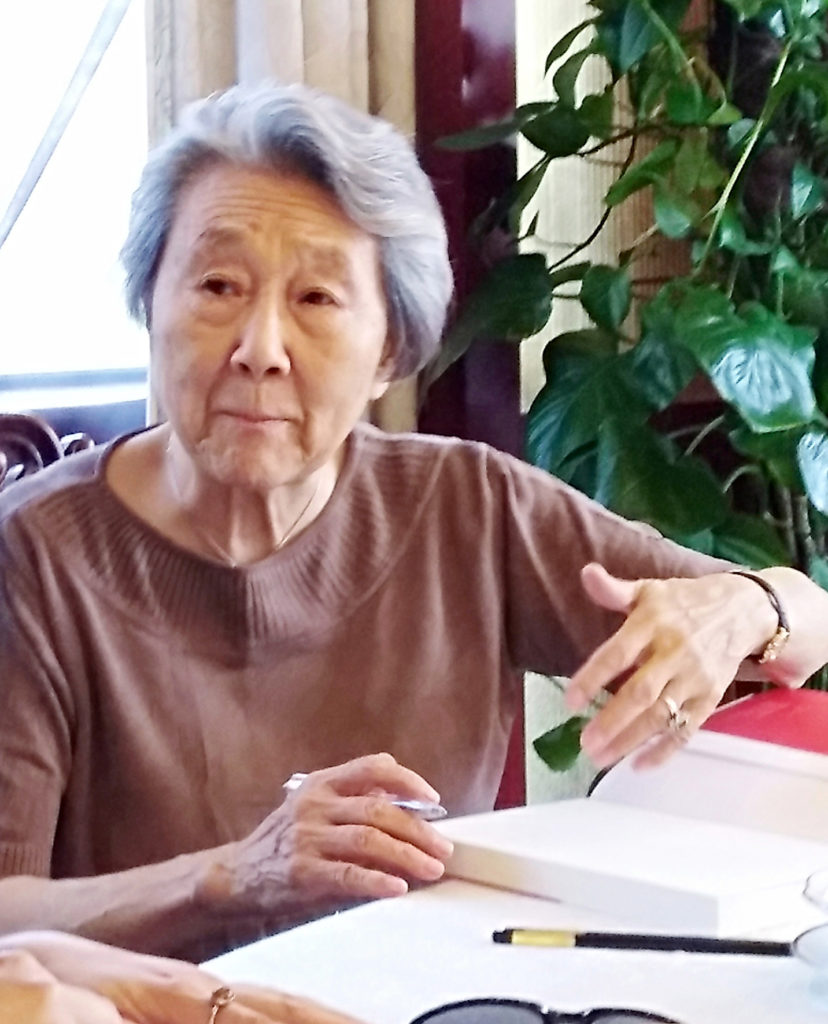
Zhou Bingde, Beijing; peacemakers conference, 2018
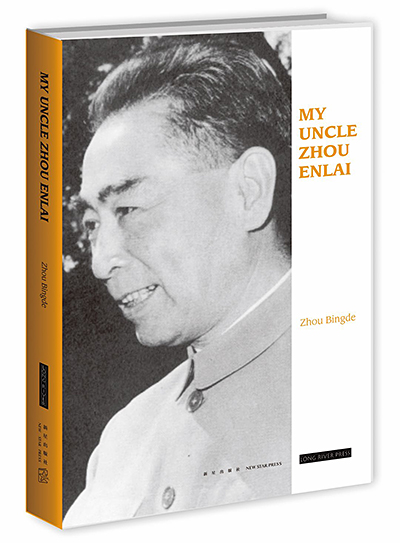
- Youth Observance: the Five Principles of Peace. A group of students from China went to New York, entirely self-funded, to participate and support the official Youth Observance of UN Peace Day. These young people presented, in symbol and movement, their vision of the Five Principles of Peace, the masterwork of diplomacy written by China’s peace hero, Zhou Enlai. The Five Principles are connected, through art, with the Five Elements of classical Chinese philosophy.

- The Tao of Peace: Taking place at the United Nations Chapel, in support of the celebration of United Nations Peace Day. This event brings together representatives of the major religions of the world, the major faiths and philosophies. We will move to an experience of the Tao, one of the root cultural, scientific traditions of China. Zhou Xiaofang will share practices and history that connect modern China with its deepest historical roots, tracing their development through the practical example of Zhou Enlai.

- The Benevolence Gallery brings together the finest works of some of China’s leading young artists. This collection was created specifically for the Right to Peace events at the United Nations, and is dedicated to the memory of China’s peacemaker, Zhou Enlai, who was a leading supporter of the arts, by La Vie Salon of Beijing.
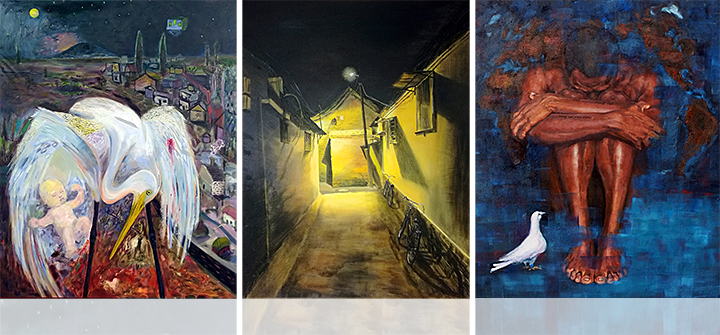
The vision, skill, and free spirit expressed by these young artists demonstrates how modern China participates in an international culture of peace. A number of the young artists traveled to New York for the occasion.
This program informed the whole world with stories of peacemaking that will inspire emulation by everyone — a durable, real, practical peace, rooted in people’s hearts, in families and communities, in cities, states and provinces, in social and economic balance, supporting a culture of peace in which China is taking an important role.
The Right to Peace inspires China’s nearly 1.4 billion people and its leaders to live up to the high standard set by Zhou Enlai, and tells the world about China’s commitment to providing shared leadership for peace.
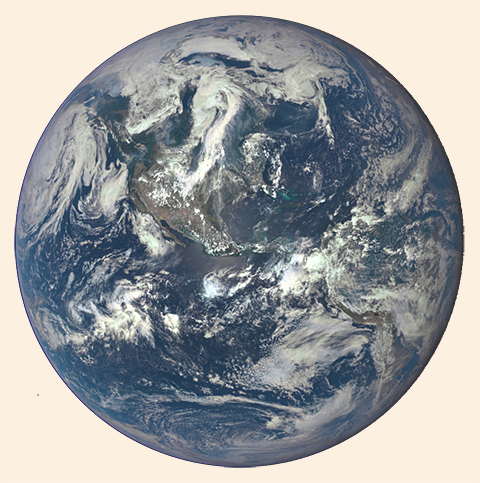
Supporting organizations include: Zhou Enlai Residence, and Zhou Enlai National Memorial, Huaian; Legends International Culture Institute; La Vie Art Salon; Ambassador Club; Pacific Study Center at Beijing Foreign Studies University; Beijing Moze and New Star Press, Beijing; Asia-Pacific Group.
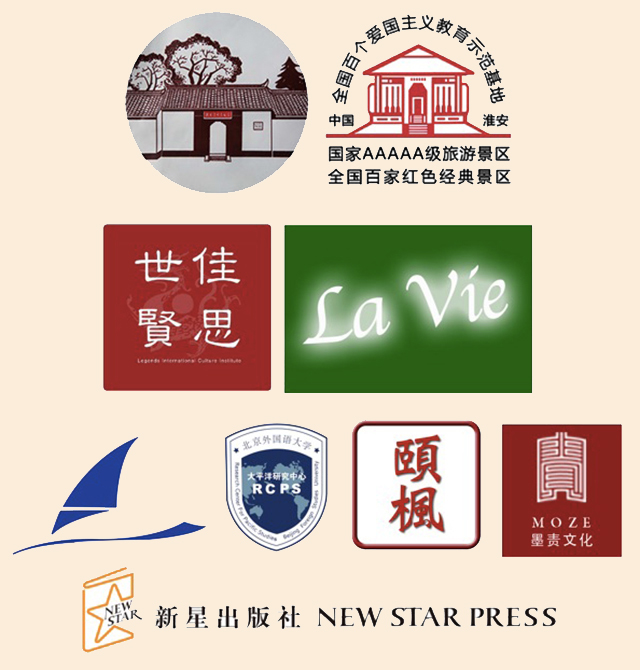

Thank you:
Zhou Bingde; Liao Xinwen; Zhou Huazhang; Sun Xiaoyuan; Xu Xing; Xu Jianhua; Pang Tingya; Lin Fanlin; Sun Zhipeng; Zhou Qing; Ni Peimin; Patric Shan; Huang Bijun; Yu Xin; Yian Jiehe; Niu Li; Ren Suxia; Gao Chao; Song Qi; Liu Xingxiong; Ji Wei; Rosaline Yin; Monica Willard; Rev. Dionne Boissiere; Levy Bautista; Jeannie Lum; Lu Jingli; David Castellano; Michael Bailey; Li Yanjun; Siddharth Koli and Jennifer Hindsley at the UN Millennium Hilton; Jason Schneider at the 911 Memorial; Roger Epstein, to the co-founders of the Zhou Enlai Peace Institute, Xiaofang Zhou North and Michael North; to our partners at Asia-Pacific Group; and always,
to the spirit of Zhou Zongli, ever with us
